Isamu Kosugi
Nacimiento : 1904-02-24, Ishinomaki, Miyagi Prefecture, Japan
Muerte : 1983-04-08
Historia
Isamu Kosugi (小杉 勇, Kosugi Isamu, 24 February 1904 – 8 April 1983) was a Japanese actor and film director.
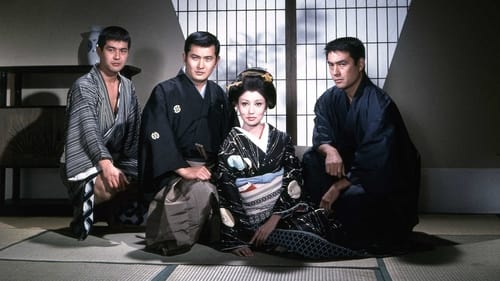
Iwamatsu Koiso
It is the end of the Taisho era (1912-1926), and at the Hanazuki-tei theatre in Asakusa, the famous performance of storyteller Koiso Kikuji and performer Kataoka Koshin is reaching its climax when the Tawaraya family interferes... This is an entertaining action film bursting with righteousness and humanity, centred on men who try to live righteously against a corrupt boss who preys on the performers.

Oba Kumakura
Sangoro Oiwake runs out of money. He visits rice shop, eat and drink for free, and owners send him to prison. In prison Sangoro will have a new life
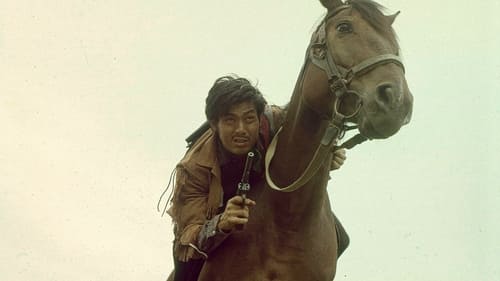
Director
Wearing a symbol of justice and brotherhood on his waist – a crimson pistol belt, Ace Joe engages in a fight with villains trying to seize the mine.

Director
Japanese comedy film.
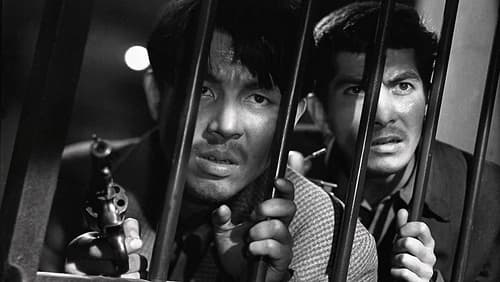
Director
A prisoner escapes from prison to find the real criminal.

Fukazawa, policeman
A prisoner escapes from prison to find the real criminal.

1959 Japanese movie

Director
1959 Japanese movie

Director
Japanese "kayo" film centered around the song "Tokyo gozen sanji" by Frank Nagai.

Shôzô

Dr. Shiozawa
The young Takako Kuramoto has come to Tokyo to study and starts working for the rich Tashiro family as tutor of the daughter, Kumiko, while she receives attention from her two older brothers, Yukichi and Shinji. Meanwhile, the exact parentage of Shinji comes to light.
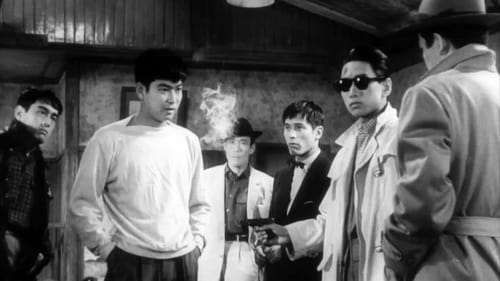
Uchiyama
A former boxer gets involved with a club hostess trying to escape the clutches of her gangster employer.

Tôhô Tani
Kawai Midori's father left the family a long time ago and since her mother passed away, she has taken care of her younger siblings by herself by working with a group of itinerant camellia oil peddlers. While she is In Izu selling camellia oil, she meets a young student, Katō Yutaka, who asks her to let him take her picture. The peddlers also meet a jazz band, and when Midori sings a song, teased by the band's star singer Nanjō Haruo, the band members are enraptured by her beautiful voice. She eventually joins the band and quickly becomes a popular jazz singer.

A narrative depicting the appearance of soldiers scattered in Rabaul during the Pacific War. The original work of Yoshinori Matsuura was dramatized by Toyama Tetsu of “Smuggling of the Body”, also directed by Yutaka Abe, and Shigeyoshi Mine of “Densuke's Propaganda” was in charge of the shooting. The main performers are Michitaro Mizushima of “Smuggling of the Body”, Ryoji Hayama of “The Sorrowful Garden”, Shoji Yasui of “The People of Okino”, Shiro Osaka of “Lonely Man”, “Tetsuji Kawakami Story 16” In addition to Hiroshi Nihonyanagi, Shinsuke Maki, Isamu Kosugi of the "Hunger Soul", Ko Mishima, Satoshi Nishimura, Saburo Hiromatsu, Hiroshi Kondo and others.

Naokichi Shiba
A continuation of Hungry Soul, from the same year. Reiko, who tolerates abuse in her marriage to a man 23 years her senior, is friends with Mayumi, a beautiful widow. Reiko meets her husband’s business rival, a young, capable businessman, and falls for him. Meanwhile, Mayumi enters into a relationship with Shimotsuma, a friend of her late husband.

Naokichi Shiba
Reiko, who tolerates abuse in her marriage to a man 23 years her senior, is friends with Mayumi, a beautiful widow. Reiko meets her husband’s business rival, a young, capable businessman, and falls for him. Meanwhile, Mayumi enters into a relationship with Shimotsuma, a friend of her late husband.

A battle for a large sum of money unfolds on the docks near a steel mill in a foggy atmosphere. Manzo, an engineer on the verge of retirement, witnesses two men shooting each other and collapsing on the quay while his assistant Shinsuke is away.

Director
A battle for a large sum of money unfolds on the docks near a steel mill in a foggy atmosphere. Manzo, an engineer on the verge of retirement, witnesses two men shooting each other and collapsing on the quay while his assistant Shinsuke is away.

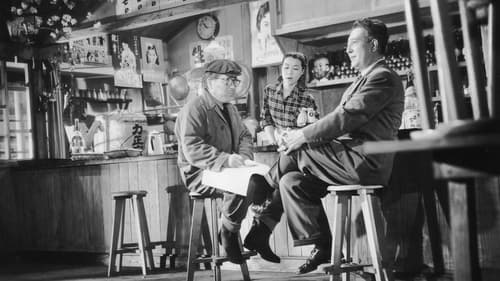
Moichiro Umeda
Takes place in one place, a beer hall, over the course of one evening. Uchida employs this concentration of setting and time to fashion a microcosm for a group portrait of Japan. One by one, the regulars of the bar appear: the pianist who dreams of becoming a composer but has disappeared from the music world after a knifing; a stripper who had planned to be a ballet dancer; an elderly painter trying to make a living at pachinko, and who rues his art having been used for militarist propaganda during the war; a young waitress considering elopement; a colonel turned real estate broker who attempts to rouse the crowd in military song until he realizes the tune has been transformed by marchers in the street into a leftist chant. The "twilight" is more than just a time of day; here, it is a state of being, a suspension between past and present, between the camaraderie of the saloon and the harsh world outside.


Shigeki Kachi, Tosuke Satomura, and Nanako, who belong to the theater company Vuanbert around Dosa, withdrew at the indignation of the chairman Hayashi and seeked their own careers in the film industry.
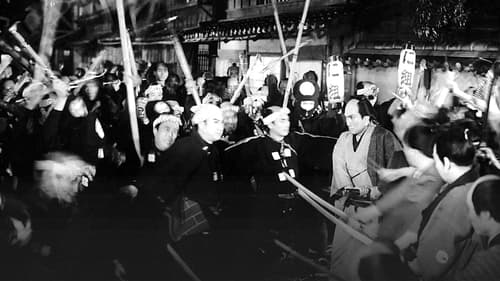
Tetsugorô
A film about the rivalry and friendship between firefighter Chоji and sumo wrestler Sokichi Fudoyama.

Matayoshi Shishido
One Sunday morning, Toshio Esaki, a young dentist, wakes up in his clinic. It seems that he was drunk and spent the night in the clinic instead of going home. When he goes into the laboratory to get a drink of water, he finds a woman wearing a green striped Western-style dress lying there.

Director
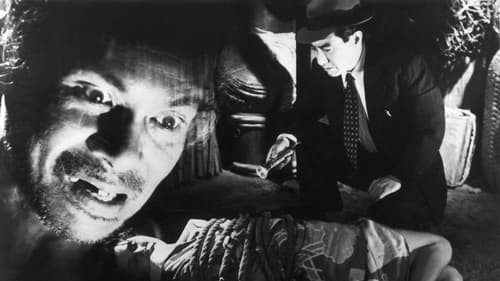
Police Shimizu
Kindaichi challenges the mystery of an incident in which three sisters were killed one after the other according to an ancient tradition on an isolated island in the Seto Inland Sea. Kosuke Kindaichi received a will from his friend Kito, which said, "Go to Gokumon Island to save my three younger sisters," and Kosuke went to Gokumon Island. Upon arriving at the residence of Quito, there were three beautiful sisters, a crazy father, a cousin of Sanae, and Kosuke plunged into a strange atmosphere. The film adaptation of the masterpiece novel of the same name by Seishi Yokomizo. Kyozo Kataoka plays Detective Kosuke Kindaichi, and Ryutaro Otomo plays Inspector Isokawa, who can be called Kindaichi's best partner.

"Delinquent Girl" - A melodramatic love story, a would-be apprenticeship between the titular “bad girl” and the optimistic scholar returning from the big city.

Jida-geki by Santaro Marune.

La hija mayor de los Takamatsu, Atsuko, viuda, vuelve a la casa paterna porque no congenia con su familia política. Por su parte, la hija menor, Yukiko, está enamorada de un profesor mayor que ella y no duda en salir de excursión con él pese al disgusto de su padre. Todo ello, unido a que Yukiko y Atusko se llevan bastante mal, va a sacudir los cimientos de la familia Takamatsu.

Kikuoka
Shogi, a Japanese form of chess, is a game that requires skill and determination. When poor sandal-maker Sakata decides to pursue his dream of becoming the Shogi Grand Master Champion, everything is at stake – including his family. What will it cost for Sakata to follow his passion?

Hiroya Yasaka
A Japanese war widow recalls her love affair with her deceased husband.

Based on the comic by Yutaka Asou

Kan'ichi Yamaguchi - captain of Machiho-maru
Waiting woman

Kotobuki-za is a story of the Naniwa-bushi singer Baichuken Tsurumaru.

Okawa
Hisshoka is a 1945 Drama film directed by four Japanese directors.

Mother and younglings
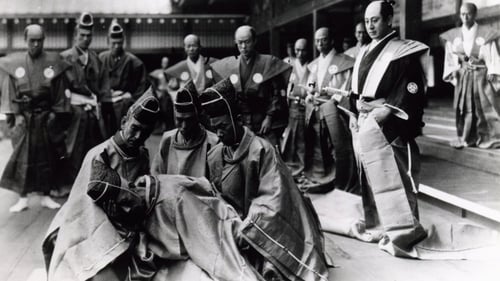
Denpachirô Tamon
El 14 de Marzo de 1701, en la real capital de Edo, el señor feudal Asano ataca al señor Kiru mientras se encuentra en tierra sagrada. A causa de esta grave ofensa, Asano es obligado a hacerse el harakiri. Sin embargo, 47 de sus samuráis juran vengar a su amo. Estrenada en dos partes en Japón, la primera de 112 minutos el 1 de diciembre de 1941 y la segunda de 111 minutos el 11 de febrero de 1942. (FILMAFFINITY)

Ryohei Kubo

Family of Love
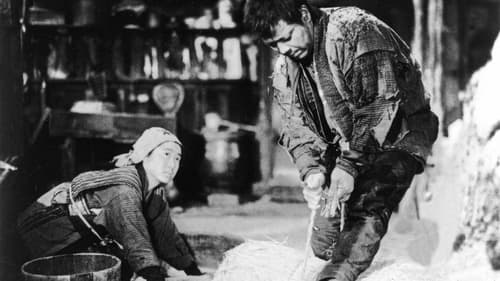
Kanji
Kanji is a poor peasant widower who struggles to earn a living for his daughter and himself and to pay off his father-in-law's debts.

"Around the time he made such remarkably ambivalent war films as Mud and Soldiers and Five Scouts, Tasaka directed this 'home front' comedy-drama which is too bizarre to be serious propaganda. [The plot revolves around a public contribution campaign to buy airplanes.] The mayor's aviator son promises to fly over the village in salute, and much of the narrative concerns the preparations for this great event. Tasaka throws in a few songs, some village humor and satire, and tremendous camera mobility, finally wringing every possible effect from his climax." John Gillett, British Film Institute

A group of Japanese soldiers land in Chinese territory. They advance on a village ; one soldier, Norimoto, is killed in the attack, but the village is captured. Norimoto’s body is recovered and buried. Over the next two days, the soldiers advance inland. Two more soldiers, Naito and Takahashi, are injured. They remain behind to recover, but vow to catch up. Their comrades march on...

An early example of the Japanese war film, closer to documentary realism than the kind of propaganda produced at the height of the Pacific War. "A company commander calls on five men. They are to reconnoiter, but on their way they are attacked. Only four of them return. While his companions mourn the fifth straggles back. Soon after comes the order to move out for a general attack. The men know that this time there will be no returning." (Donald Richie)

One of Uchida’s early sound films, Unending Advance is based on a curious story by Yasujiro Ozu, in which an examination of the quotidian problems of a middle-aged salaryman and his family segues into an idyllic dream of an implausible future. The surviving print, although incomplete, offers an essential glimpse into Uchida’s prewar period, when he was associated more with realist dramas than with the period films that dominated his work after the war.

A 1937 Japanese language film directed by Tomu Uchida, starring Ryo Akaboshi, Mitsuru Date and Hisao Furutani.

Teruo Yamato
At the invitation of the Japanese Ministry of Education, the former “mountain filmer” Fanck directed this “cultural feature film” with Japanese actors in Japan, making this the first, German-Japanese co-production. The young Japanese man Teruo gets caught up in a conflict between tradition and modernism, when he returns to Japan from Germany after having spent a number of years there studying. Now, he is supposed to marry Mitsuko, the daughter of his adoptive father, to whom Teruo has long been promised. But Teruo, who has gotten to know the freedoms of the western world, would rather marry the woman he loves and behaves brusquely to Mitsuko.

Film about poet Ishikawa Takuboku

En 1936, el director Tomu Uchida llevó al cine la primera parte de la novela El teatro de la vida, que basándose en el retrato de la corrupción de un hombre y la mujer que desairó, se centra en la juventud del personaje.

Kentaro's father
Father, son Kentaro and daughter Ochiyo, who live on the banks of the Sumida River, regain their love for each other after family discord and separation. The film is considered lost.
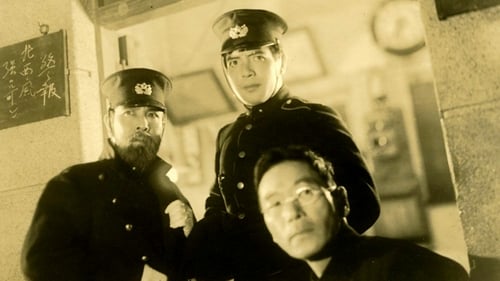
Officer Itami
Itami, a young policeman, meets his high school friend, Tetsuo, a gangster, at a roadblock. As they rekindled their friendship, a complex relationship is established between them.

Higuchi
While returning by boat to Japan, Yoshie Fujiwara meets a rich woman who suggests him to become a singer thanks to an impresario friend of hers.

Daisuke Segi

Directed by Kenji Mizoguchi.
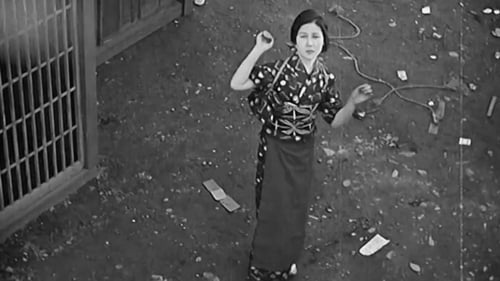
A classic melodramatic love tragedy addressing social inequality in feudal Japan, depicted in Kenji Mizoguchi's typical style. The nostalgic scenes of 1920s Tokyo provides a valuable visual experience set against the background of the title song, "Tokyo March." (Sadly, only 24 minutes of the film now survive.)































